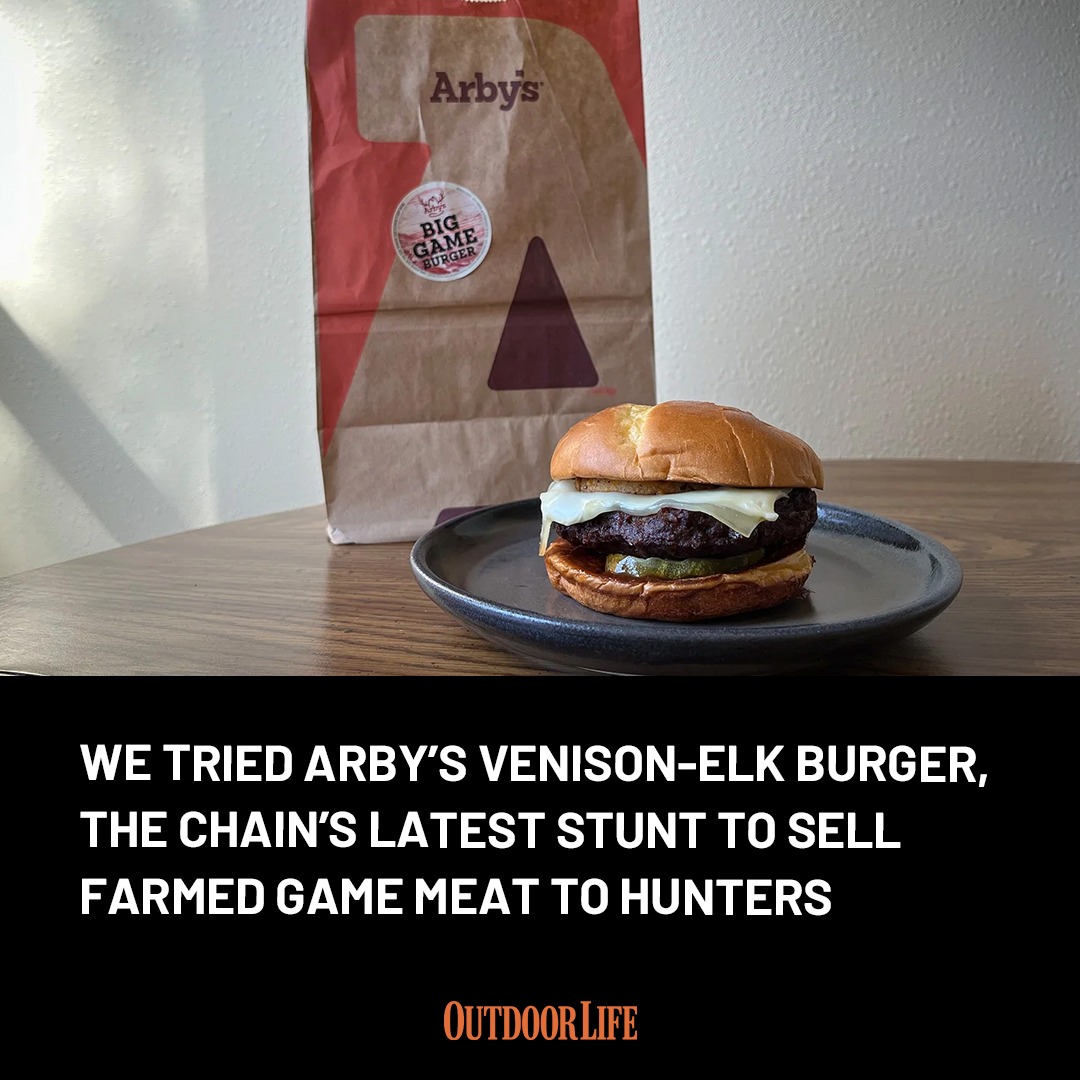I didn’t get to summit Burger Mountain, but I did snag a Big Game Burger from my local Arby’s franchise. (I’ll get to that in a minute.) From a distance, the Colorado experience seems designed to mimic a day in the life of a Colorado big game hunter—breath-taking scenery, a sweaty ascent to 10,371 feet above sea-level, and, if successful, a rewarding meal sourced straight from the woods to help close the loop between human and nature. Except, as any hunter would know, the Arby’s Big Game Burger actually connects consumers to the game-farming industry rather than the wilderness.
Where Does the Meat Come From?
For anyone unfamiliar with how food laws and the North American model of wildlife conservation interact, hunter-harvested wild game is not available for purchase in restaurants or grocery stores in the United States. (There are exceptions for non-native critters like axis deer and feral hogs.) This separation helps bolster the integrity of wild game species as a natural resource held in trust for sustainable public use. It also allows federal agencies like the USDA and the FDA to keep a firm grasp on what meat products enter the consumer market.
This creates a win-win for both wildlife conservation and public health. Hunters aren’t motivated by profits and diners know (or hope) that their bone-in ribeye was handled in compliance with government regulations. (Prefer to know exactly where your meat came from? Befriend a hunter or, better yet, take a hunter’s safety course and learn how to hunt.)
An Annual Tradition
This isn’t the chain’s first foray into game-adjacent offerings. Arby’s sold venison sandwiches in 17 locations in Wisconsin, Michigan, Minnesota, Georgia, Tennessee, and Pennsylvania in late October 2016. They re-released the venison sandwich on the same day a year later, and added an elk sandwich to the menu at just three locations in the Mountain West: Thornton, Colorado; Casper, Wyoming; and Billings, Montana. On Oct. 20, 2018, they sold farmed duck sandwiches at 16 locations across each of the four migratory flyways. They even released a promo video featuring a black Labrador retriever bringing an Arby’s bag to its owner after he failed to call in a few ducks.
It’s an indisputably strange concept. Arby’s is marketing farmed fast-food versions of traditional wild game meals to extremely hunter-rich communities during hunting season when, ideally, hunters are bringing home meat of their own. Isn’t that like selling ice to penguins?
And yet, the sandwiches reportedly sell out in minutes every year. Maybe it’s the novelty of getting something other than beef at a drive-thru. Or maybe hunters are entertained by the idea of a global quick-service restaurant brand that seems to understand them. So, for less than $10, hunters swing by Arby’s on their way home from an unfruitful morning sit and chow down on five ounces of farm-raised red deer that was flown across the Pacific from New Zealand. (Oddly enough, the Cabernet steak sauce on the venison sandwich is adapted from a recipe published by Field & Stream.)
This year, as part of its Big Game Burger promo, Arby’s is selling merch that looks lifted straight from the pages of an REI catalog: a banana yellow anorak, socks, a ballcap, a Nalgene water bottle, and a sticker sheet for decorating said water bottle with. The colorful, 70s-themed products are more “National Parks road trip” than “backcountry big game excursion.” This must be the crowd one columnist had in mind when she wrote that “Arby’s sources farmed venison and elk for its menu; the animals are not shot down by hunters out for sport.”
Read Next: The Ultimate Red Meat: Venison vs Beef
But maybe Arby’s is creating an opportunity for convergence. If an outdoorsy type from Denver is willing to eat farmed venison and elk from the other side of the world at a fast-food restaurant, maybe they’d be willing to try real venison harvested by a hunter on American soil. I’ll wager a burger made from a whitetail shot in the foothills of the Rocky Mountains has a significantly lower carbon footprint than one flown in from the South Pacific. Maybe some Arby’s customers would even like to try harvesting it themselves one day, if they don’t already.
My Bite of the Big Game Burger
I was the first person to try a Big Game Burger from my local Arby’s franchise, not because I was invited but because I hopped in the drive-thru line at 10:18 a.m., making me their first customer of the day. I brought the sandwich home and took a big bite. It was fine. The meat wasn’t remarkable, neither great nor terrible. I liked the dark cherry sauce and the pickles, and it’s definitely a better fast-food burger than most (as it should be for nine bucks a pop). But my immediate reaction upon taking a bite reveals the Achilles’ heel of the Arby’s game meat model—and also might provide some insight as to why these sandwiches are only available in limited quantities for short periods of time in parts of the country that are overrun by hunters.
Wow, I thought. I can make a better venison burger than this.
